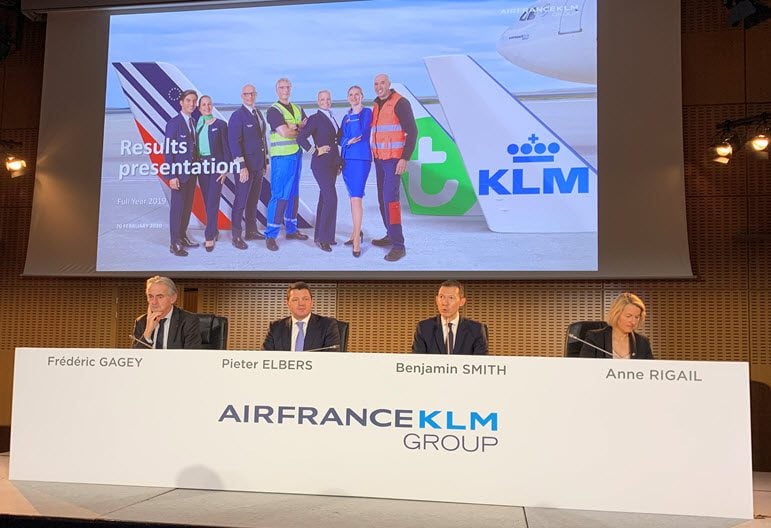
2020 02 20 11 06 56
A blunder or at least a serious misjudgment: that’s the proposed bonus increase for KLM CEO Pieter Elbers. It was on next Thursday’s annual general meeting for KLM’s shareholders but after a storm of criticism has been withdrawn by the supervisory board and Elbers himself.
Indeed, at a time when many airline CEO’s have announced they forego on their salaries during the next weeks and months amidst the world’s biggest air industry crisis, it was really bad timing to suggest an increase in Elbers’ bonus anyway. What makes it even more sensitive in the Dutch political landscape is that the government will make an imminent decision on a partial bailout package that could include some EUR 2 billion in loan guarantees. How to justify this support to save KLM when at the same time Elbers is eligible for a higher bonus? That’s bad timing.
At the same time, the proposal to increase Elbers’s remuneration and bonus isn’t new. After Group CEO Benjamin Smith joined Air France-KLM at the end of 2018, it became evident he was under different terms for incentives compared to his colleague at KLM. While Smith was eligible for a 100 percent annual bonus on top of his fixed salary, Elbers would have only 75 percent. After Elbers got a new four-year term in February 2019, it was agreed this situation would be addressed.
So it was ‘better alignment’ (KLM press release) of this scheme that was on the AGM’s agenda this coming week.
“This is not the right time”
When De Telegraaf, one of The Netherlands’ leading newspapers, brought the news on April 17, many went bananas. Minister of Finance Wopke Hoekstra publicly showed dismay when saying: “It’s not the right time to discuss these matters now. Let’s not forget this is a company that has been asking for massive aid from the government.” Indeed, KLM has been granted access to the Dutch version of the Payroll Support Program in which the government pays 90 percent of the salaries for the next three months. Despite this aid, KLM has ended contracts of some 1.500 temporary staff for which it has been criticized heavily by unions, politicians and the public.
It left the supervisory board and Elbers no other way than to withdraw the proposal on April 18. As Elbers said in a statement: “The unrest surrounding this adjustment of the remuneration policy is unfortunate. I, therefore, asked the KLM Supervisory Board to withdraw the item on adjustment of remuneration policy from the agenda of the AGM. My own focus, and that of my KLM colleagues, is on the continuity of our company and on retaining KLM for the Netherlands. That should be a topic of discussion and not remuneration. It is regrettable that this has caused so much turmoil.”
The Board’s chairman Cees ‘t Hart said: “Within the current context, the difference between policy and execution of the policy is lost. With regard to the execution of policy, we had already decided, in consultation with the CEO, to waive variable remuneration for 2020. The proposal to adjust remuneration policy has, unfortunately, given the wrong impression and caused unrest. It would have been better to leave this item off the agenda, which is why we have now withdrawn it. This decision will also give KLM the opportunity to align its future remuneration policy with the conditions that the Netherlands government is likely to impose on support measures.”
A number of (leftist) parliamentarians and environmental groups like Greenpeace have demanded that support measures for KLM should be conditional and include proven measures to make KLM more sustainable. They openly question the need for government support to the airline industry at a time when flying less for environmental reasons is needed. It is a view that has won support with the Dutch in the last couple of years, although at the same time never before
In this already strained atmosphere, a report on Dutch TV on April 18 isn’t helpful to KLM, which said that many of its pilots are registered as living in Spain to evade paying taxes.
Views: 0



